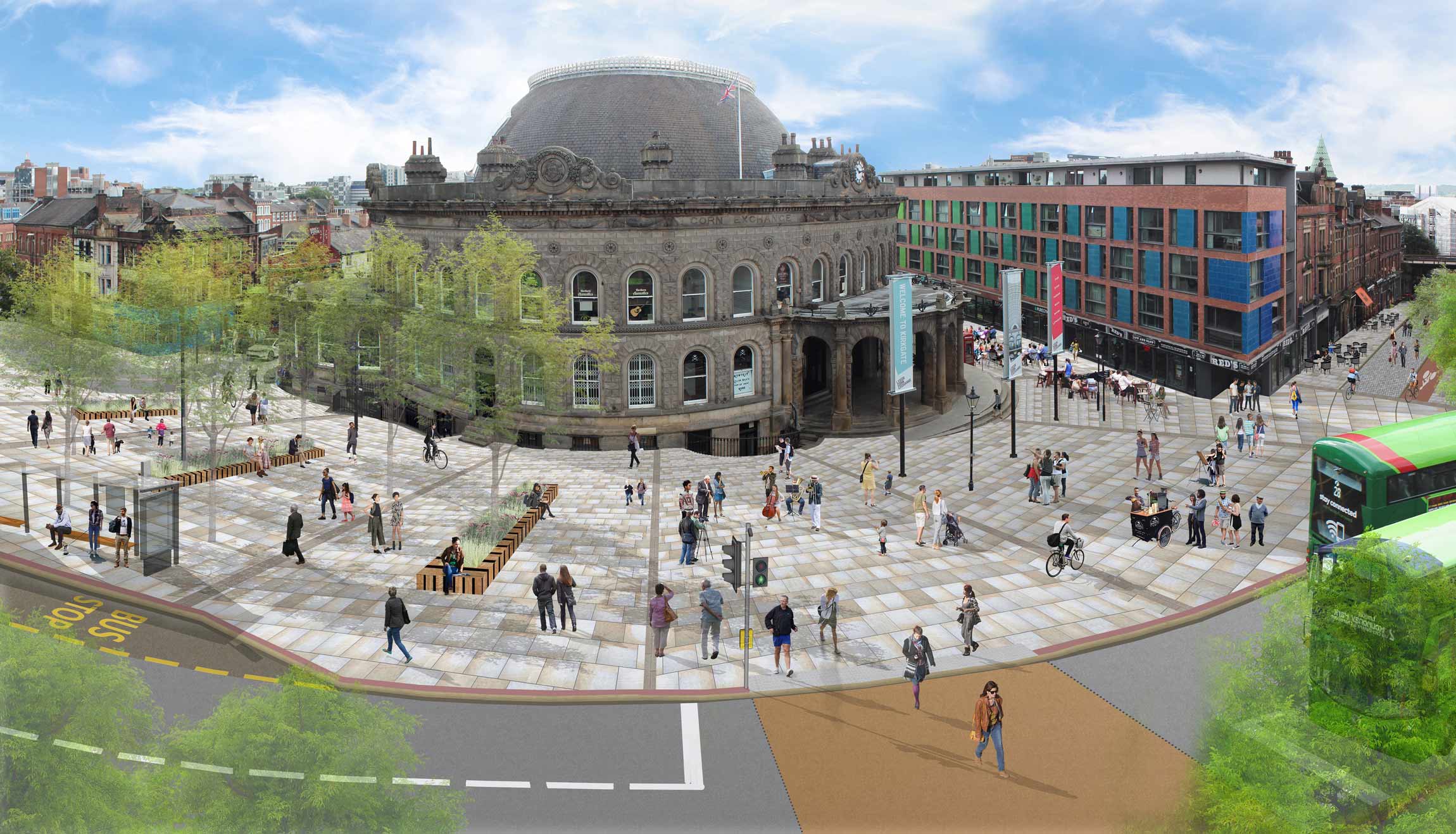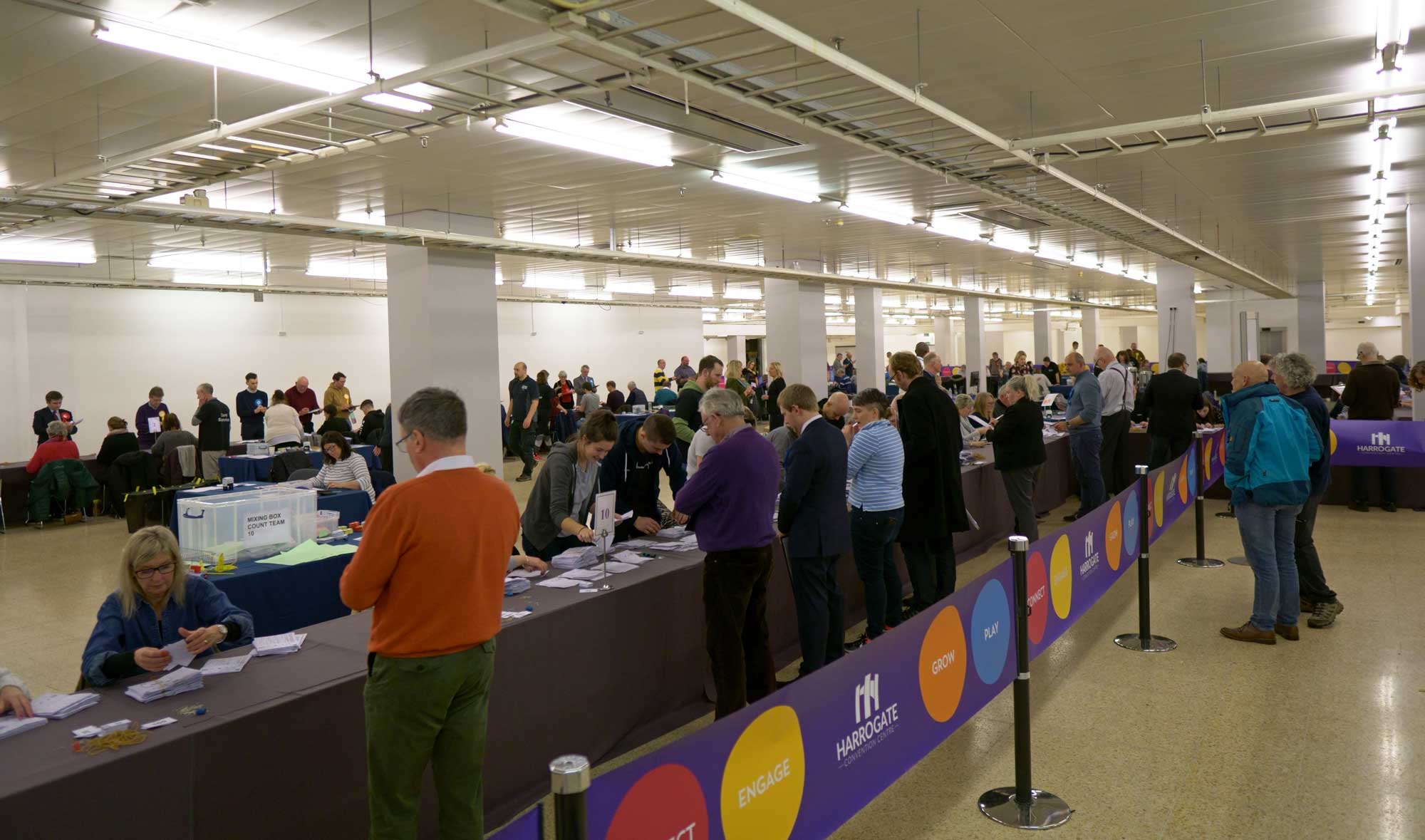Approval has been given for the first step in bringing about transformational improvements to the Corn Exchange area in Leeds.
Leeds City Council’s executive board have formally agreed the £21.5million construction plans required to transform the Corn Exchange and surrounding areas. A further £6.1million is secured for phase two works on Meadow Lane.
Work is being carried out as part of the Connecting Leeds programme which is set to invest an unprecedented £270million in the transport network of the city.
The area surrounding the Corn Exchange no longer meets the transport and economic ambitions of the city. It is congested and buses regularly are held up or delayed.
Work on phase one starts in June to transform Call Lane, New Market Street, Kirkgate, Lower Briggate Duncan Street and parts of Vicar Lane and Boar Lane. The work will include widening pavements, introducing more greenery and improved public realm.
The second phase will focus on Meadow Lane to re-prioritise it from a four-lane highway, into a mainly two-lane road with cycle ways and walking routes connecting the city via the planned city park. This proposal is a significant development in the council’s commitment to be carbon neutral by 2030.
The scheme will also offer priority for pedestrians and cyclists in a bid to encourage a modal shift from private cars to walking, cycling and public transport use. It is anticipated the scheme will lead to a reduction of 175km travelled in private cars in the opening year. The reduction is expected to be maintained throughout a lifespan of 60 years.
The expected completion date for all the work is by winter 2020.
Leeds City Council’s executive member for climate change, transport and sustainable development, Councillor Lisa Mulherin, said:
I am delighted this transformational scheme has now got the green light. The enhancements will place the iconic buildings of the Corn Exchange and Kirkgate Market in a more appropriate setting. The bus priority measures and improved walking and cycling routes will improve connectivity services and air quality in the city.
Like all major schemes, there will be disruption, however Leeds City Council will work closely with the bus companies, other transport providers and business to keep this to a minimum and will work hard to keep the public informed of changes which affect them. We’re currently working on unprecedented investment and change to transform the city centre into a more liveable, better connected and more active environment with better air quality for those who live, work and play in it. Whist we work to minimise any inconvenience this work will cause, however we anticipate the long term benefits will be worth the disruption whilst this change takes place.






